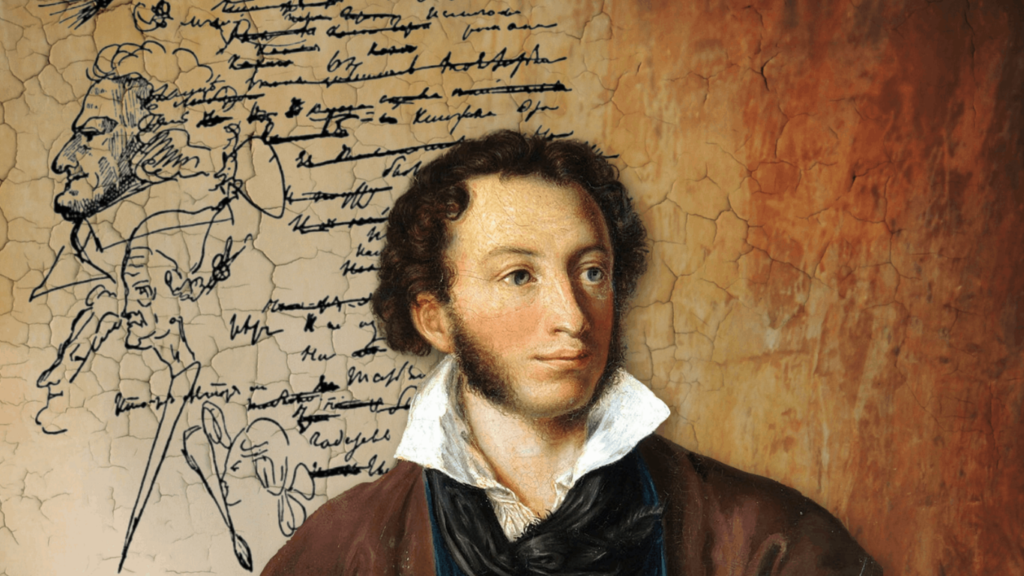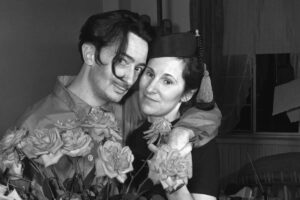Do you want to know how the famous phrase that "Pushkin is our everything" came about? Let's tell you how the genius poet influenced the development of the Russian language and culture for a century to come
- The reading time is 5 minutes
- Who called Pushkin "our everything"
- Is modern Russian the language of Pushkin?
- Pushkin's influence on 19th century Russian culture
- Pushkin in Russian language classes at Palme School
Perhaps there is not a single Russian-speaking person in the world who is not familiar with Pushkin's work. Who hasn't read "The Tale of the Fisherman and the Goldfish" as a child? And who has not heard of the love story of "Eugene Onegin"? And, of course, does not know these lines: "I remember a wonderful moment..."? After all, these are all the works of the greatest Russian poet, writer, playwright Alexander Sergeyevich Pushkin.
It so happens that any child born into Russian culture is familiarized with Pushkin's fairy tales from birth, learns his poems about nature in elementary school, and reads Belkin's Tales in middle school.
It seems that the entire school program on literature can be made up of just the works of Alexander Pushkin. And how did he manage to write so much in his short life!
Where did the phrase "Pushkin is our everything" come from?
In 1859, twenty-two years after Pushkin's death, the literary and theater critic and writer Apollon Grigoriev wrote:
"And Pushkin is our everything: Pushkin is the representative of all our soulful, special, such that remains our soulful, special after all collisions with strangers, with other worlds" (Apollon Grigoriev "A Look at Russian Literature since Pushkin's Death", 1859)
Why Pushkin's language is considered modern
Strangely enough, until the 18th century, Russian literature had few works in Russian. Secular literature was in use only among a small number of educated people, who mostly read French. If there were any attempts to write poetry or prose in Russian, they were usually written in a complex syllable. Even Mikhail Vasilyevich Lomonosov, the founder of Russian literature in the 18th century, would not be understood by modern readers without an explanatory dictionary.
But everything changed with the birth of Alexander Pushkin, who was born in the last year of the 18th century, in 1799. And in that era, powdered wigs and bouffant dresses were still in vogue, as well as the fashion for everything French. Moreover, the nobility spoke French, and Russian many noble people simply did not know. And Pushkin himself from birth spoke French and wrote his first poems in that language.
So why do literary scholars consider the modern Russian language starting "from Pushkin to the present day"?
The fact is that the poet early began to write his works in Russian and with each work honed his syllable. To the surprise of his contemporaries, Pushkin wrote in simple language, understandable to most people. When the poem "Ruslan and Lyudmila" was published in 1820, many people did not believe that writing in Russian could be so accessible.
Thanks to Pushkin, the Russian language became more colloquial and was enriched with new words. For example, he actively used plain words in his texts - "so and so", "in full spirit", "and was so". In addition, the poet borrowed words from French, such as "vest", "pantaloons", "tailcoat".
In addition, researchers note that the grammar and speech turns in Alexander Sergeevich's works are closer to the modern Russian language than the prose of 18th century poets.
How Pushkin's work influenced Russian culture
Alexander Sergeyevich was familiar with Nikolai Gogol and spoke positively about his work. Thanks to this, Nikolai Vasilyevich believed in his talent and left us a legacy of many of his brightest works.
In addition, Pushkin's style and philosophy influenced many great Russian writers who considered him their teacher. For example, Leo Tolstoy recalled that he was inspired by Alexander Sergeyevich's work on Anna Karenina. Fyodor Dostoevsky at the unveiling of a monument to Pushkin in 1880 in Moscow also called the poet the embodiment of the character of the Russian people.
As a result, all this combined to create the phenomenon of Russian culture in the 19th century. It was at this time that the whole educated world paid attention to it and spoke.
Pushkin's image in Russian language lessons at our school
At Palme School we pay a lot of attention to the study of Russian culture through acquaintance with significant characters - writers, musicians, scientists, historical figures. And the figure of Alexander Pushkin is no exception.
For example, in Russian language lessons, children go to the museum with him, discuss famous paintings, and familiarize themselves with modern trends in language (such as memes).
In addition, during literature lessons, teenagers read Pushkin's poems and fairy tales, learn to think and immerse themselves in the world of Russian culture.
By the way, if you want to test your knowledge about the writer's life, you can pass the our test.
Do you want your child to grow up to be an erudite person and be able to freely discuss literature, art or science in Russian? Try lessons at Palme School. To sign up for a free trial lesson, fill in the form below and our manager will contact you.







